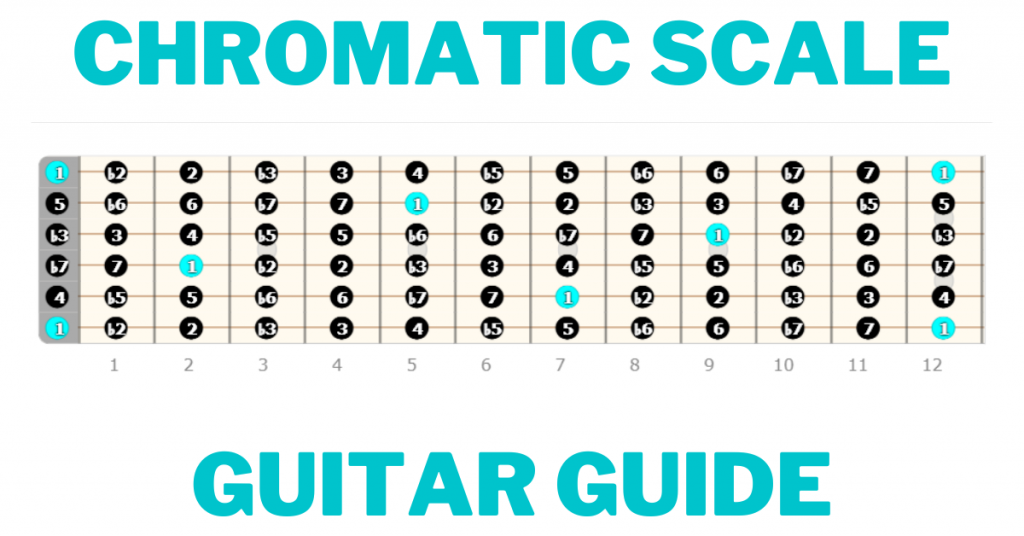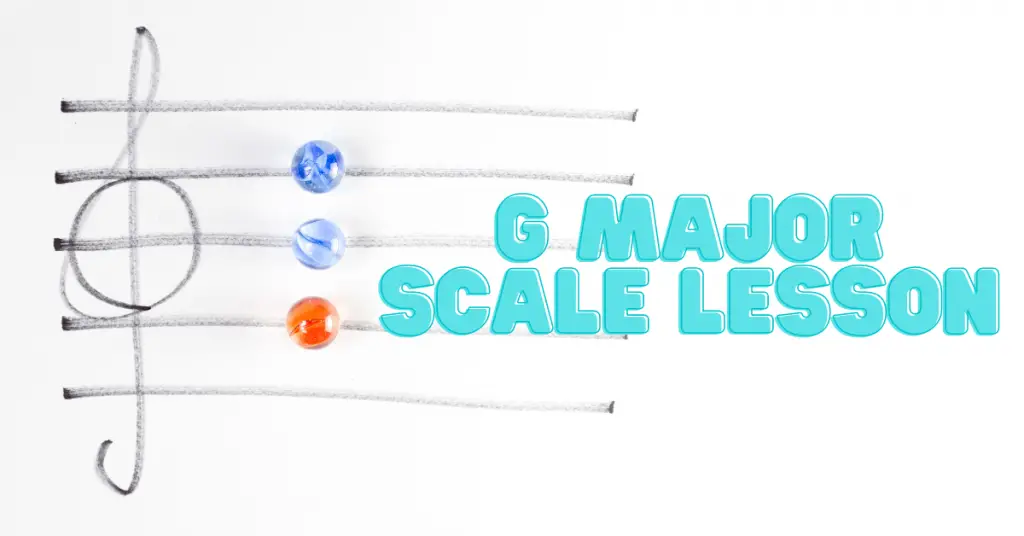This is a simple, complete, step-by-step chromatic scale guitar lesson. You’ll learn the basics of the chromatic scale and how to play it.
Here’s the YouTube video for this lesson. Subscribe to the channel if you want to improve your guitar skills!
What is a chromatic scale?
A chromatic scale is all 12 notes from Western theory played sequentially in semitones/half steps.
The fact that the chromatic scale contains all 12 of these notes makes it the parent of all scales.
Bonus: Check out my free guitar course!
Chromatic scale formula
The chromatic scale formula is:
1-b2-2-b3-3-4-b5-5-b6-6-b7-7
How to play chromatic scale guitar patterns
When learning guitar scale patterns you need to remember that they can be transposed.
So, even though this chromatic scale starts with the root note C, you can move it to any other root note and it will behave in the same way.
And the only reason to have a root note in a chromatic scale is to imply a root. The root is usually determined by the musical context.
C Chromatic Scale
As you can see, this C chromatic scale moves across 2 different octaves on the fretboard.
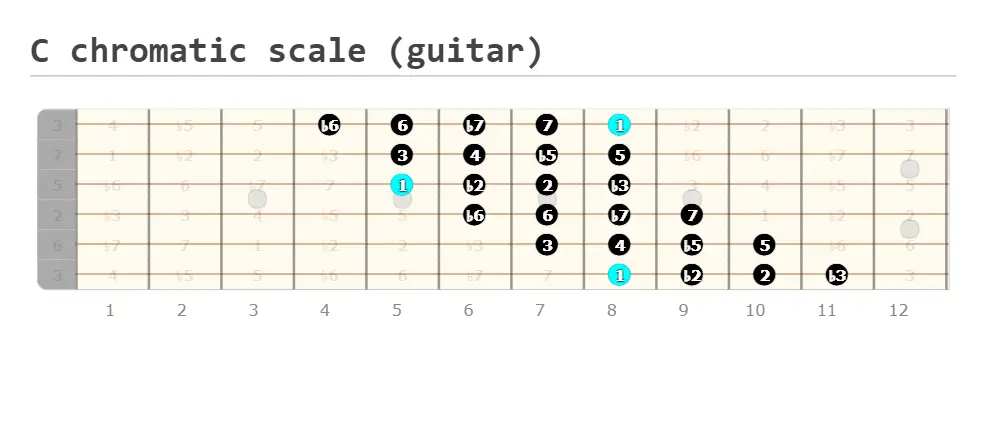
Notes in the C chromatic scale
The notes in the C chromatic scale, ascending, are:
C-C#-D-D#-E-F-F#-G-G#-A-A#-B
C chromatic scale PDF
E chromatic scale on one string
This chromatic scale shape is played within a single octave on a single guitar string.
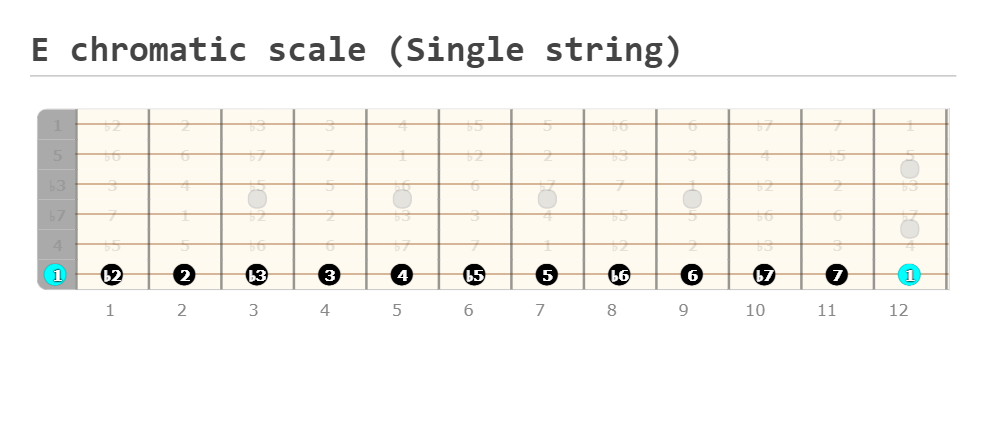
E chromatic scale single string PDF
Chromatic scale fretboard diagram
Even though this fretboard diagram uses the root note E, you can use any root note that you want.
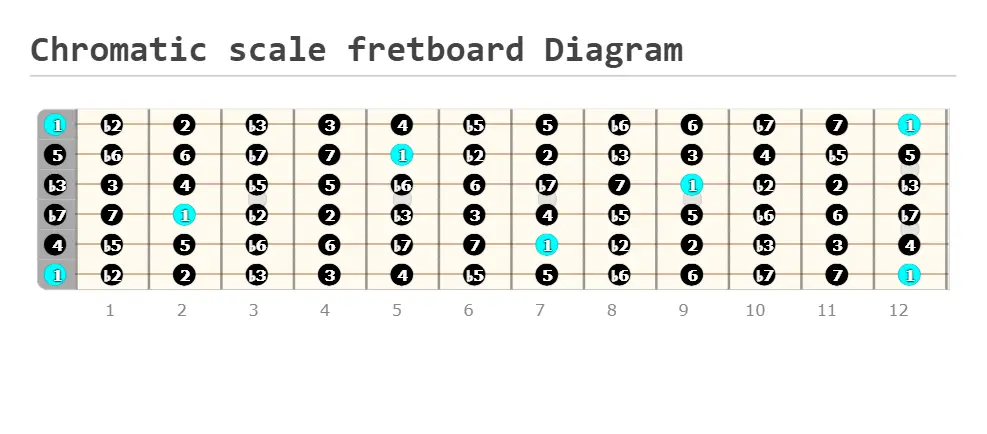
Chromatic scale guitar diagram PDF
Chromatic scale guitar summary
The chromatic scale is the mother of all musical scales in Western harmony, and is played using all 12 notes consecutively.
That’s it! Pick a root note and play every note up until the octave, and you’ll play a chromatic guitar scale.

